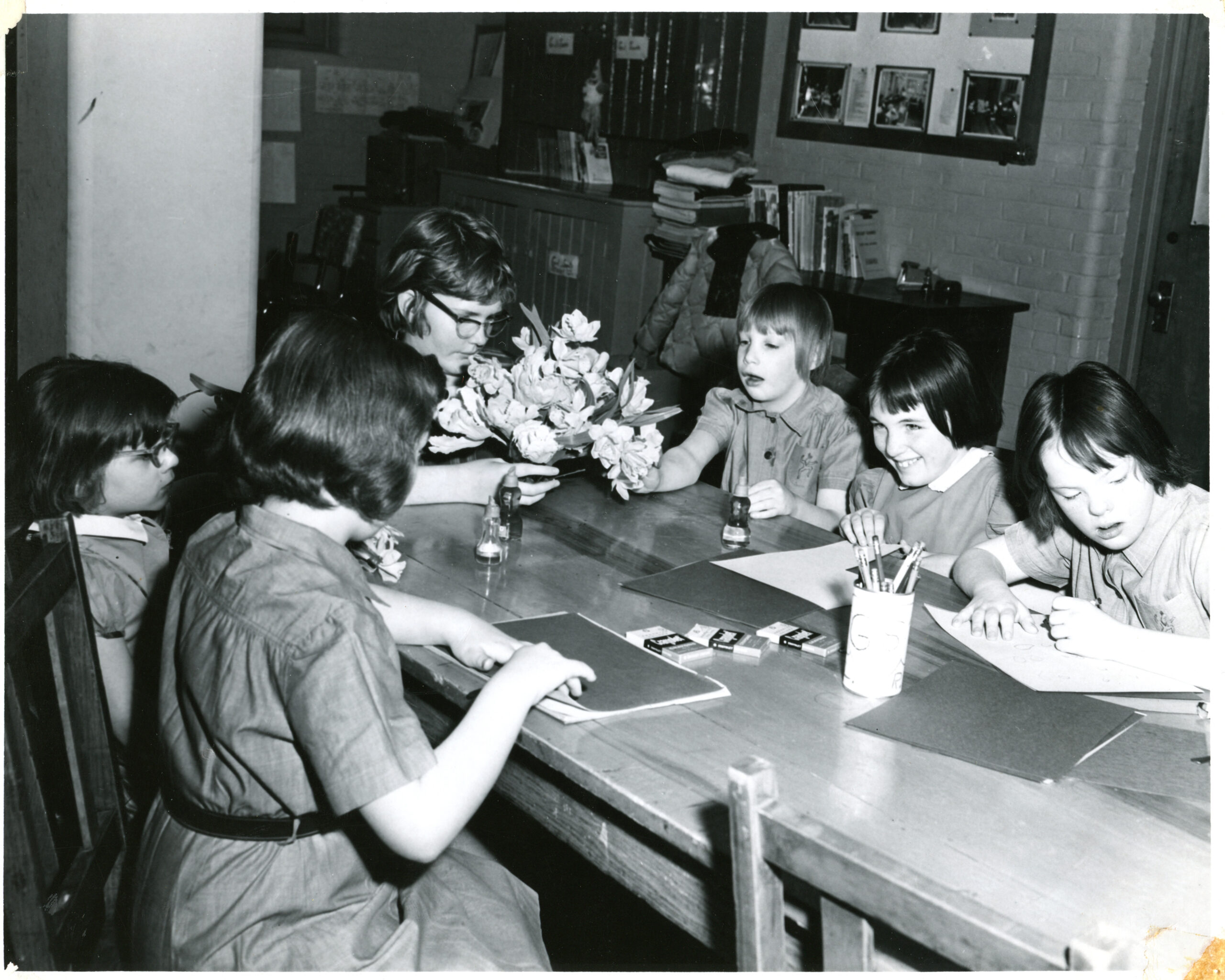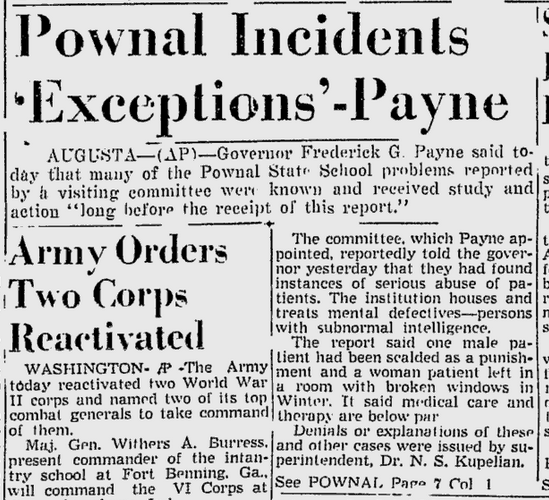“The Bureau of Mental Health shall be responsible for the direction of the mental health programs in the institutions within the department and shall be responsible for the promotion and guidance of mental health programs within the several communities of the State.”
This bill allowed municipalities to raise funds for “the education of teachers to meet the education needs of mentally retarded children”, and pledging matching funds from the State.

Superintendent Bowman himself began to express the view that many of those at Pineland could and should be returned to the community: “the mission and objective of Pineland is to return to the family, the community, and to outside civilization as many of the patients as possible, after they have received the maximum training and education we can provide here.”
The Maine Legislature, as such bodies are wont to do when faced with intractable systemic problems, on the recommendation of the Legislative Research Committee in 1955 created a Governor’s advisory committee to study the issue - the Maine Committee on Problems of the Mentally Retarded.
While still segregated from their non-disabled peers, this law opened up opportunities to children with developmental disabilities.
In 1954, a group of parents formed a support and advocacy group: Pownal Parents and Friends. When the news of abuses came to light these parents were horrified, and began to organize towards investigating further and improving conditions for their children and family members living in Pownal. These groups and others like it would form the basis of the community care system in Maine.

A Visiting Committee in 1951 cited cruel and abusive treatment, including excessive use of straightjackets, euphemistically known as "camisoles," and physical punishments. Superintendent Peter Bowman reported that some patients had been "scalded, beaten, and sexually abused in the recent past." But, Bowman stressed, most employees were caring and tried to do the best for residents – but were hampered by inadequate facilities, and staff shortages.
The Maine Federation of Women's Clubs expressed concerns about conditions at state institutions and found overcrowding, staff shortages, and inadequate food and clothing.
Governor Hildreth signed into law a bill creating the Division of Special Education for Physically Handicapped Children under the Maine Education Department. While it only provided for children with physical disabilities and the “special” classes were separate from their “normal” peers, this bill was a step towards providing an education for every children regardless of disability.
While the patient population would peak in the 1930s at around 1,500, Superintendent Kupelian would continue to advocate for expanding the numbers of residents - asking the public to support funding for up to 9,000 total patients.
